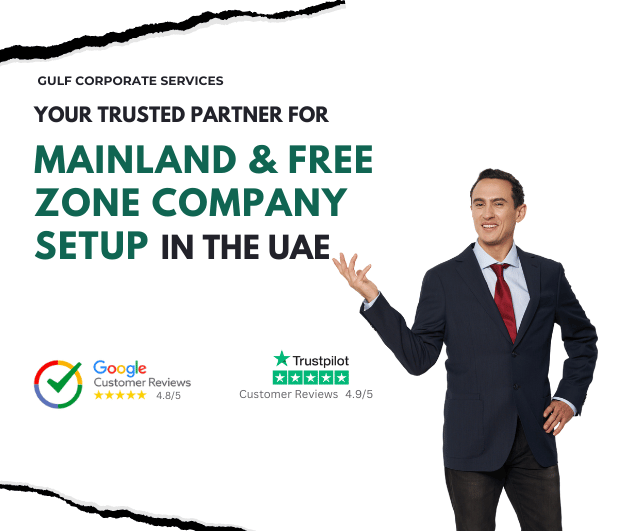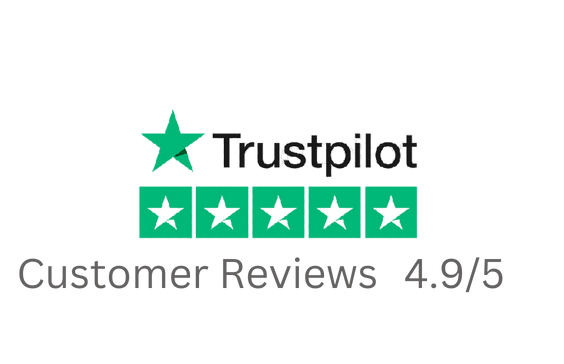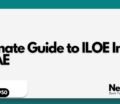
Dubai has emerged as one of the world’s leading petroleum trading hubs, offering unmatched opportunities for entrepreneurs looking to establish their presence in the oil and gas industry. With its strategic location, world-class infrastructure, and business-friendly policies, the emirate provides an ideal environment for petroleum product companies to thrive and expand globally.
Why Choose Dubai for Your Petroleum Business?
Dubai stands as the undisputed leader in the global petroleum trading industry, offering unparalleled advantages for energy entrepreneurs. The emirate’s world-class infrastructure, strategic location between East and West, and progressive business policies create an ecosystem where petroleum companies Dubai can achieve exceptional growth and profitability in today’s competitive energy markets.
Strategic Geographic Location
Dubai’s position as a Middle East energy hub makes it an attractive destination for petroleum entrepreneurs. The city serves as a bridge between major oil-producing nations and global markets, providing access to both upstream and downstream opportunities in the petroleum sector Dubai.
Business-Friendly Environment
The emirate’s advanced free zone facilities offer significant advantages including 100% foreign ownership, zero corporate taxes for qualifying businesses, and streamlined regulatory processes. Additionally, Dubai’s robust financial ecosystem and proximity to major oil trading markets create an environment where petroleum businesses can flourish.
Government Support and Policies
The government’s commitment to diversifying the economy while maintaining its energy sector leadership has resulted in policies that actively support petroleum company formation and international trade activities.
Understanding Dubai’s Petroleum Industry Landscape
The Dubai petroleum market represents a sophisticated ecosystem worth billions of dollars annually, encompassing everything from crude oil trading to refined product distribution. This dynamic sector offers diverse opportunities for both established corporations and emerging entrepreneurs, supported by cutting-edge technology, world-class storage facilities, and comprehensive regulatory frameworks that ensure operational excellence and market integrity.
Market Segments and Opportunities
Dubai’s petroleum industry encompasses various segments including crude oil trading, refined petroleum products, petrochemicals, and energy services. The Dubai Multi Commodities Centre (DMCC) serves as the primary hub for energy trading activities, hosting numerous international petroleum trading companies.
Infrastructure and Strategic Initiatives
The emirate’s strategic initiatives include developing advanced storage facilities, expanding pipeline networks, and enhancing port capabilities to support growing petroleum business opportunities. Major international oil companies have established their regional headquarters in Dubai, creating a thriving ecosystem for both large corporations and emerging businesses.
Industry Evolution and Trends
Understanding market dynamics, regulatory requirements, and industry trends is crucial for success in Dubai’s competitive petroleum landscape. The sector continues to evolve with technological advancements and changing global energy demands.
Legal Requirements and Business Structure Options
Navigating the petroleum company registration in Dubai process requires understanding various legal structures and their implications for business operations. Each formation option offers distinct advantages regarding taxation, ownership rights, operational flexibility, and market access. Entrepreneurs must carefully evaluate these options against their business objectives, capital requirements, and long-term growth strategies to ensure optimal structural alignment.
Free Zone Company Formation
Establishing a petroleum product company in Dubai requires careful consideration of legal structures and compliance requirements. Free Zone Company Formation offers the most attractive benefits for petroleum businesses, including complete foreign ownership, tax exemptions, and simplified licensing procedures. Popular free zones for petroleum companies include DMCC, Jebel Ali Free Zone (JAFZA), and Dubai Airport Free Zone.
Mainland Company Setup
Mainland Company Setup provides access to the local UAE market and allows direct trading with government entities. However, this option typically requires a local UAE partner holding 51% ownership, though recent regulatory changes have introduced exceptions for certain sectors.
Offshore Company Registration
Offshore Company Registration suits businesses focused on international trading activities without establishing a physical presence in Dubai. This structure offers privacy benefits and tax efficiency for qualifying operations.
Choosing the Right Structure
Each structure has specific petroleum business license requirements, capital obligations, and operational restrictions that must be carefully evaluated based on business objectives.
Step-by-Step Company Formation Process
Successfully establishing a petroleum trading company in Dubai requires methodical execution of multiple interconnected processes, from initial documentation to final operational launch. This comprehensive approach ensures regulatory compliance, minimizes delays, and establishes strong foundations for sustainable business growth. Professional guidance throughout each phase significantly improves success rates and reduces potential complications that could impact business operations.
Initial Planning and Documentation Phase
The petroleum company setup in Dubai process involves several systematic steps that must be completed in compliance with UAE regulations and international standards. Initial Planning and Documentation begins with conducting market research, preparing a comprehensive business plan, and gathering required documents including passport copies, educational certificates, and experience letters. Professional consultation helps navigate regulatory complexities and optimize business structure selection.
License Application and Approval Process
License Application and Approval requires submitting detailed applications to relevant authorities, including trade license applications, environmental compliance certificates, and safety permits. The Dubai petroleum license process typically takes 2-4 weeks depending on business complexity and document completeness.
Office Setup and Banking Requirements
Office Setup and Bank Account Opening involves securing appropriate office space, establishing corporate banking relationships, and implementing necessary operational systems. Banks require comprehensive documentation and may conduct due diligence processes for petroleum-related businesses.
Staff Recruitment and Operations
Staff Recruitment and Visa Processing includes hiring qualified personnel, processing employment visas, and ensuring compliance with UAE labor regulations. The petroleum industry requires specialized expertise, making talent acquisition a critical success factor.
Licensing and Regulatory Compliance
Petroleum trading license Dubai requirements encompass multiple regulatory bodies and compliance frameworks. The Dubai Department of Economic Development (DED) oversees general business licensing, while specialized authorities handle sector-specific permits.
Environmental and Safety Permits are mandatory for petroleum operations, requiring compliance with UAE environmental standards and international safety protocols. Companies must demonstrate adequate safety measures, environmental protection plans, and emergency response capabilities.
Import/Export Permits enable international trading activities and must be obtained from UAE customs authorities. These permits specify allowed petroleum products, quantity limitations, and compliance requirements for cross-border transactions.
Financial Services Compliance includes obtaining necessary approvals for financial transactions, anti-money laundering compliance, and reporting obligations to UAE Central Bank and other regulatory bodies.
Regular compliance audits, permit renewals, and regulatory updates require ongoing attention to maintain operational licenses and avoid penalties.
Capital Requirements and Financing Options
Petroleum company capital requirements vary significantly based on business scope, chosen structure, and operational scale. Free zone companies typically require minimum capital ranging from AED 150,000 to AED 500,000, while mainland companies may have higher requirements.
Traditional Bank Financing remains a primary funding source, with UAE banks offering specialized petroleum sector financing products. Banks evaluate business plans, management experience, and market potential when considering loan applications.
Alternative Financing Solutions include private equity investments, venture capital funding, and international development finance institutions. These options often provide not only capital but also valuable industry expertise and network access.
Government Support Programs occasionally offer incentives for petroleum sector investments, particularly those aligned with UAE economic diversification objectives and sustainability initiatives.
Proper financial planning includes considering working capital requirements, equipment financing needs, and contingency funds for market volatility.
Market Entry Strategies and Growth Opportunities
Successful petroleum business in Dubai ventures require well-defined market entry strategies that leverage local advantages while addressing competitive challenges. Understanding customer segments, pricing dynamics, and supply chain logistics is essential for sustainable growth.
Partnership Development with established local and international companies can provide market access, operational expertise, and risk mitigation. Strategic alliances often accelerate market penetration and reduce initial investment requirements.
Technology Integration and digital transformation initiatives enhance operational efficiency and competitive positioning. Modern petroleum companies invest in advanced trading platforms, risk management systems, and supply chain optimization technologies.
Expansion Planning should consider regional growth opportunities, product diversification possibilities, and international market development. Dubai’s strategic location facilitates expansion into African, Asian, and European markets.
Market research, competitive analysis, and continuous monitoring of industry trends support informed decision-making and strategic planning processes.
Conclusion
Establishing a petroleum product company in Dubai presents exceptional opportunities for entrepreneurs seeking to participate in the global energy market. The emirate’s strategic advantages, supportive regulatory environment, and world-class infrastructure create an ideal foundation for petroleum business success.
Success requires careful planning, thorough understanding of regulatory requirements, adequate capitalization, and strategic market positioning. Professional guidance throughout the formation process helps navigate complexities and optimize business outcomes.
Dubai’s continued commitment to maintaining its position as a leading energy hub, combined with ongoing economic diversification efforts, ensures sustained opportunities for petroleum companies. Entrepreneurs who properly leverage these advantages while maintaining high operational standards can build thriving businesses that contribute to both local economic development and global energy markets.
Whether you’re planning to establish a trading company, distribution business, or specialized petroleum services firm, business setup in Dubai, UAE offers the platform and resources necessary to achieve your entrepreneurial objectives in the dynamic petroleum industry.
Frequently Asked Questions (FAQs)
What is the minimum capital required to start a petroleum company in Dubai?
The minimum capital requirement varies by business structure and free zone. Generally, free zone companies require AED 150,000 to AED 500,000, while mainland companies may have higher requirements depending on the specific business activities.
How long does it take to obtain a petroleum trading license in Dubai?
The licensing process typically takes 2-4 weeks for free zone companies and 4-6 weeks for mainland companies, assuming all documentation is complete and requirements are met.
Can I own 100% of a petroleum company in Dubai as a foreign investor?
Yes, foreign investors can own 100% of petroleum companies established in Dubai’s free zones. Mainland companies traditionally required local partnership, though recent regulatory changes have introduced exceptions for certain sectors.
What are the main regulatory bodies governing petroleum businesses in Dubai?
Key regulatory bodies include the Dubai Department of Economic Development (DED), Dubai Multi Commodities Centre (DMCC), UAE Ministry of Energy, and various environmental and safety authorities.
Is prior experience in the petroleum industry required to start a company in Dubai?
While not legally mandatory, having relevant industry experience significantly improves success prospects and may be required by banks and partners. Professional expertise can also be acquired through qualified staff recruitment.
What types of petroleum products can be traded through a Dubai-based company?
Companies can trade various petroleum products including crude oil, refined products (gasoline, diesel, jet fuel), petrochemicals, and related energy commodities, subject to proper licensing and compliance requirements.
Are there any restrictions on petroleum product imports and exports?
Petroleum trading activities must comply with UAE customs regulations, international sanctions, and environmental standards. Proper import/export permits and compliance with quality specifications are required.
What ongoing compliance requirements apply to petroleum companies in Dubai?
Ongoing requirements include license renewals, regulatory reporting, tax filings (where applicable), environmental compliance monitoring, safety audits, and adherence to anti-money laundering regulations.








